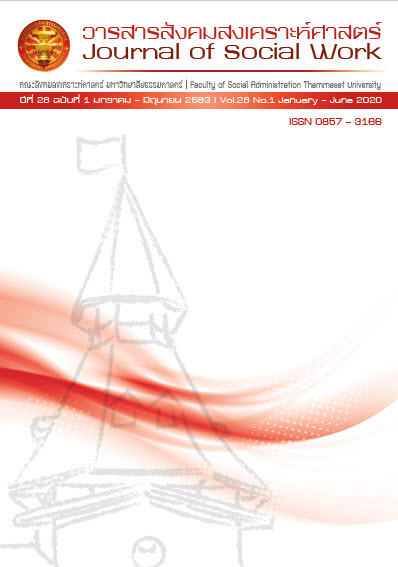Driving the Bangkok Rules of Mother and Children living in prisons of Thailand
Keywords:
Drive, Bangkok Rules, Women prisoners, Women inmates and their children residing in prisonAbstract
This article discussed the progress of Bangkok Rules on women inmates and their young children residing in prisons of Thailand in the aspects of their health, their rights, and childcare. The objective of this study is to examine the progress of Bangkok Rules on women prisoners and their young children residing in prisons, issues, obstacles, and recommendation in driving Bangkok Rules on women inmates and their young children in Thailand and providing practical guidelines for correctional officers. The study is determined to indicate the need and urgency of driving Bangkok Rules on women prisoners and their young children residing in prisons of Thailand, while outlining recommendations on the suitable practices. This research largely utilizes documentary research methodology, including literature reviews of related theories, research documents pertinent to the United Nations Rules and Bangkok Rules on women prisoners and their children, the treatment of women prisoners and their children residing in Thailand’s prisons, international standards of treatment of female prisoners, social bonding theory, and socialization theory. The research reveals that pregnant inmates, women inmates with young children, and children residing in prisons faced different issues, based on the type of women prisons and correctional institutions in each province.
Budgeting also posed as an obstacle to the promotion of Bangkok Rules, as each annual budget may not be sufficient for the number of pregnant inmates, female prisoners with young children, and young children in prison. Issues, such as prison nurseries, hygiene of female prisoners, management of prison beds, welfare of pregnant prisoners, post-partum prisoners, and children residing in prisons, the lack of psychologist social workers, and access to pediatricians and midwives, the lack of data base that links between prisons and correctional institutions, and the coordination and collaboration of correctional officers relating to women prisoners and children residing in prisons, posed difficulties for Thailand’s prisons to fully apply Bangkok Rules.Although Bangkok Rules evidently outlines practices and guidelines, there remain the limitations of the size of the facilities, the management of staffs and officers in each prison and correctional institution, which have been the major obstacles in driving Bangkok Rules on women prisoners and their young children residing in prison.
This research can be used to establish policies for the future guidelines for correctional officers relating to mothers and children residing in prisons in order to improve and drive Bangkok Rules on women inmates and their children residing in prisons of Thailand in the future.
Published
How to Cite
Issue
Section
License
The manuscripts published in the Social Work Journal is the copyright of the Social Work Journal, Thammasat University
Any article or opinion appeared in the Social Work Journal will solely be under the responsibility of the author The Faculty of Social Administration, Thammasat University and the editors do not need to reach in agreement or hold any responsibility.



